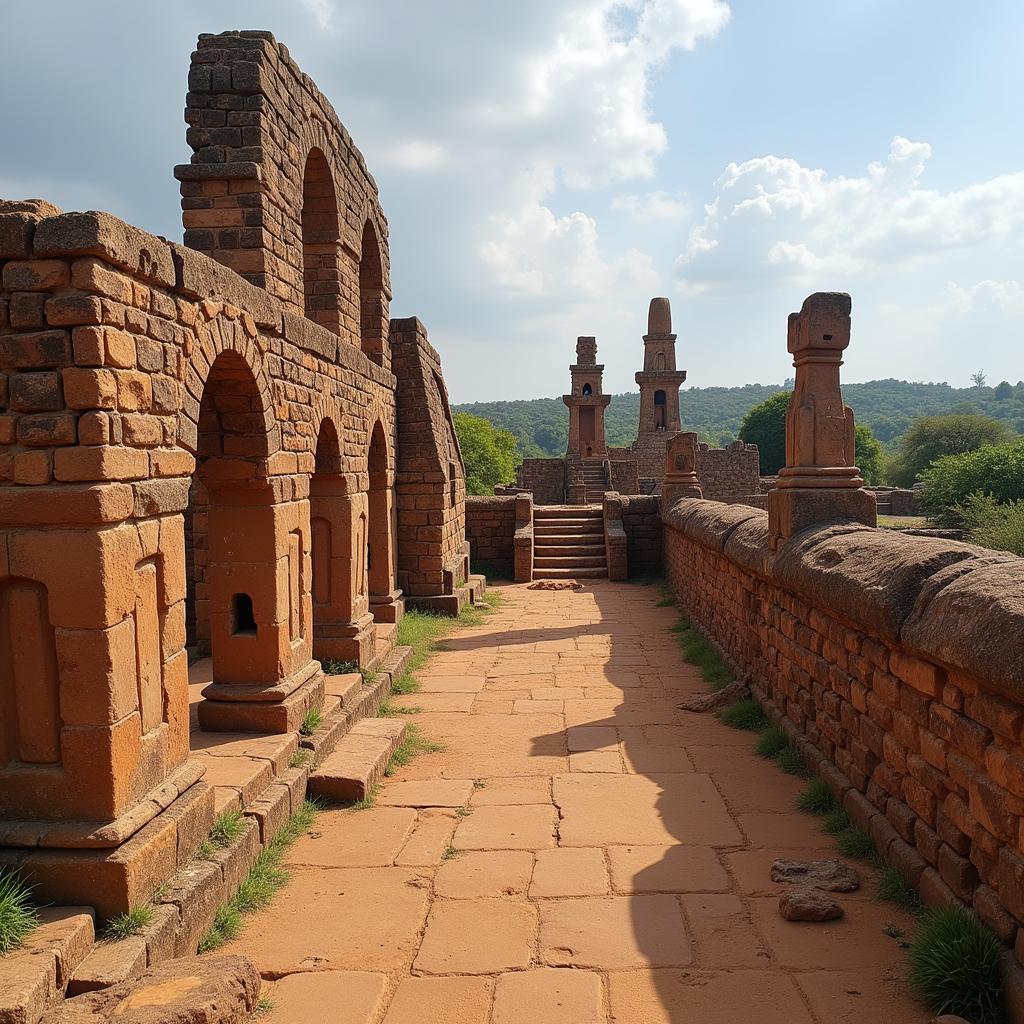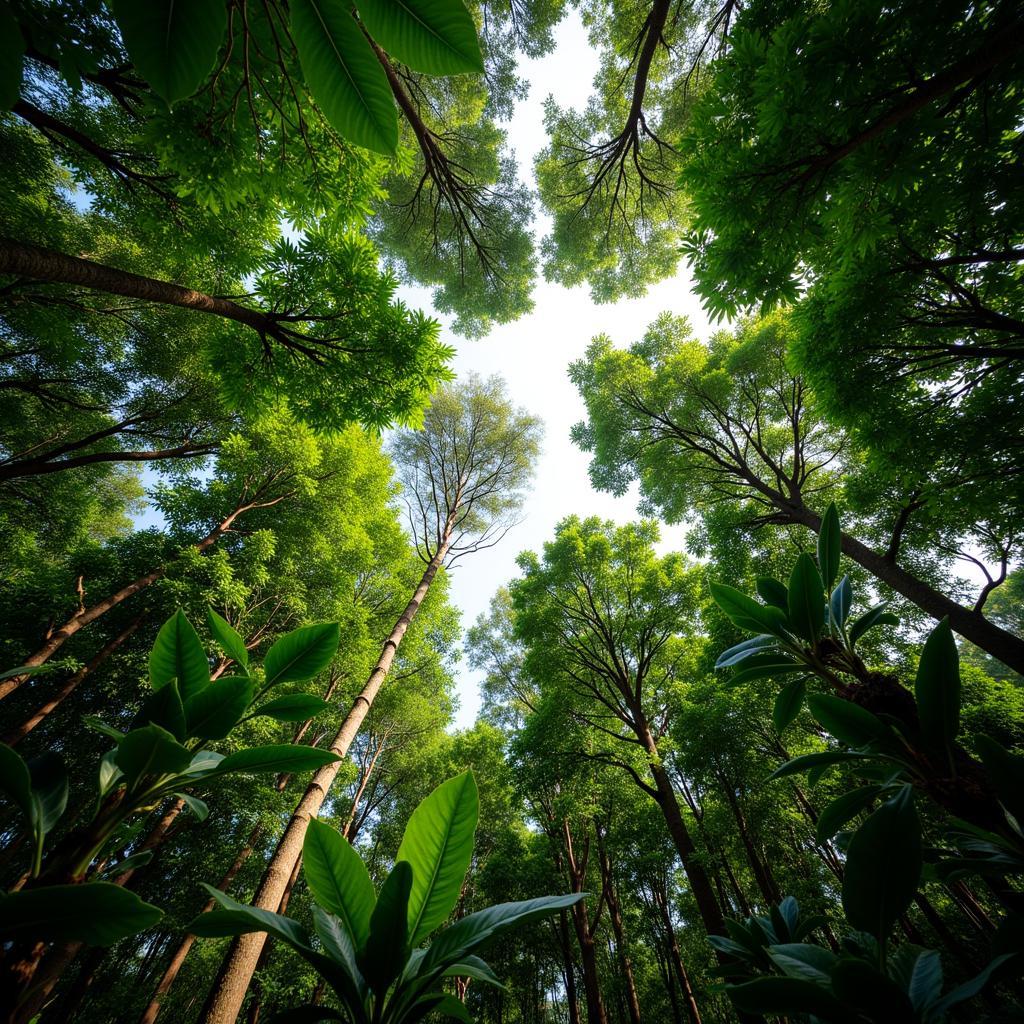Unveiling the Mysteries of the African Golden Cobra
The African Golden Cobra, a captivating and highly venomous snake, reigns supreme in the grasslands and savannas of sub-Saharan Africa. Its shimmering scales and potent venom make it a creature of both fascination and fear. This article delves into the intricacies of the African golden cobra’s life, exploring its behavior, habitat, venom, and conservation status.
The Golden Hunter: Behavior and Habitat of the African Golden Cobra
The African golden cobra, scientifically known as Naja nivea, is a diurnal snake, meaning it is most active during the day. Unlike some cobra species that prefer a more arboreal lifestyle, the golden cobra is primarily terrestrial, navigating the ground with ease and grace. They are known for their intelligence and adaptability, thriving in diverse habitats ranging from dry savannas and semi-deserts to rocky outcrops and open woodlands.
These snakes are active foragers, primarily hunting small mammals, lizards, birds, and even other snakes. Their hunting strategy involves actively seeking out prey, using their keen eyesight and sense of smell to locate potential meals. Once prey is detected, the African golden cobra strikes with lightning speed, injecting its potent venom.
The golden cobra is not particularly aggressive unless provoked or cornered. However, when threatened, it raises its hood, hisses loudly, and strikes with precision. This defensive display serves as a warning to potential predators.
Venom and Its Impact: Understanding the Dangers of the African Golden Cobra
The venom of the African golden cobra is primarily neurotoxic, meaning it affects the nervous system. It is considered one of the most potent venoms among cobra species. The venom disrupts the transmission of nerve signals, leading to paralysis, respiratory failure, and ultimately, death if left untreated.
Symptoms of an African golden cobra bite can manifest rapidly, often within minutes. These include localized pain and swelling at the bite site, difficulty breathing, blurred vision, and paralysis. Prompt medical attention and antivenom administration are crucial for survival.
“The venom of the African golden cobra is incredibly potent,” explains Dr. Anya Sharma, a leading herpetologist specializing in African venomous snakes. “It’s essential to treat a bite from this species as a medical emergency.”
Conservation Concerns: Protecting the African Golden Cobra
While the African golden cobra is not currently classified as endangered, it faces several threats, including habitat loss due to human encroachment and the illegal wildlife trade. Efforts are underway to protect its natural habitats and raise awareness about the importance of conservation. These initiatives are vital for ensuring the long-term survival of this magnificent creature.
The African Golden Cobra: FAQs
- What is the average lifespan of an African golden cobra? In the wild, they typically live for 10-15 years.
- What is the size of an African golden cobra? They can reach lengths of 1.2 to 1.8 meters.
- Where is the African golden cobra found? They inhabit various regions of sub-Saharan Africa.
- What does the African golden cobra eat? Their diet primarily consists of small mammals, lizards, and other snakes.
- Is the African golden cobra aggressive? They are generally not aggressive unless threatened.
- What is the treatment for an African golden cobra bite? Prompt administration of antivenom is crucial.
- How can I contribute to African golden cobra conservation? Supporting organizations dedicated to wildlife conservation in Africa is one way to help.
In conclusion, the African golden cobra, a symbol of power and beauty, holds a vital role in the African ecosystem. Understanding its behavior, venom, and conservation status is crucial for both appreciating its magnificence and ensuring its continued existence. The African golden cobra deserves our respect and protection.
“Protecting the African golden cobra is not just about saving a species; it’s about preserving the intricate balance of the African ecosystem,” adds Dr. Ben Okoye, a wildlife conservationist working in Tanzania. “Their role as a predator is vital for maintaining healthy populations of prey species.”
For further insights into African culture and wildlife, you can explore our article on african fancy dress ideas.
Need help with anything related to African wildlife, especially the African Golden Cobra? Feel free to contact us. Call us at +255768904061, email us at [email protected], or visit us at Mbarali DC Mawindi, Kangaga, Tanzania. We have a 24/7 customer service team ready to assist you.

